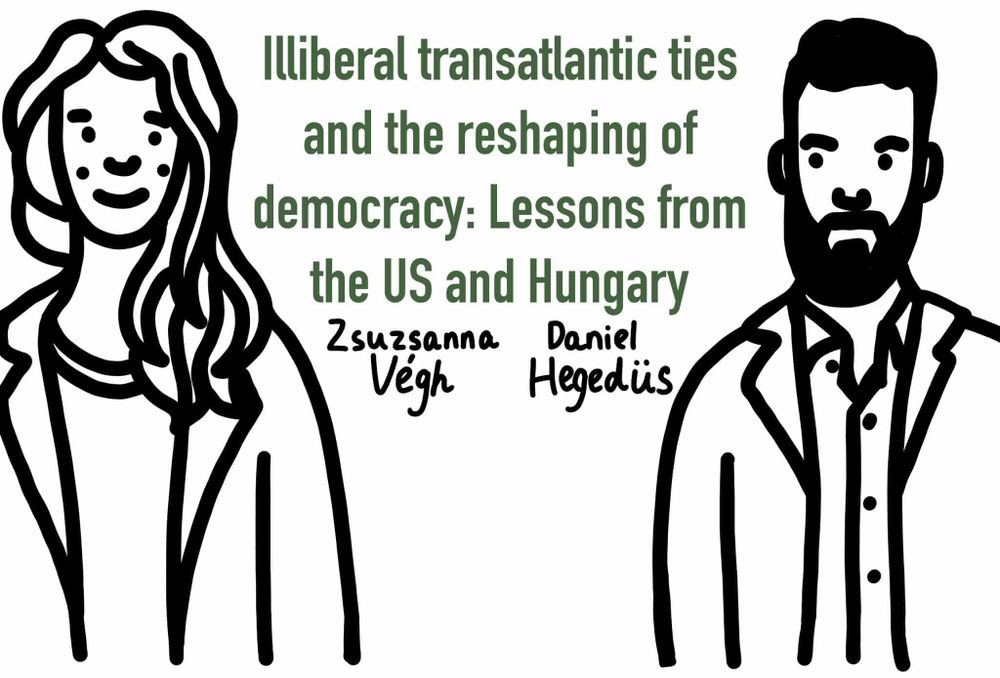
🚨 New publication out @jeppjournal.bsky.social w/ Katrin Praprotnik @luanarusso.bsky.social @markuswagner.bsky.social
We show that coalition signals from the mainstream right to the radical right shift, rather than reduce, existing political divisions.
Open-access article: doi.org/10.1080/1350...
01.10.2025 15:26 — 👍 64 🔁 26 💬 3 📌 3
🤔 Curious about our new open access dataset on migrant electoral rights?
Join us for the webinar to get an overview. 📊
01.10.2025 12:04 — 👍 6 🔁 4 💬 0 📌 0

Bohemia Illiberalis? Perspectives on Czechia’s Future Democratic Landscape and Foreign Policy After the Elections
Where is Czechia headed after the 2025 parliamentary election? Join our discussion on October 6 (Monday) at 3:00 p.m. CET.
‼️ TODAY‼️
💭 What's ahead for Czechia after the parliamentary election?
📅 Oct 6, 3:00pm CET
📍 Online
🗣️
@petraguasti.bsky.social @charlesuni.cuni.cz
@danielhegedus.bsky.social @gmfus.bsky.social
Vit Dostal (AMO)
Andrea Michalcová (Centre for an Informed Society)
06.10.2025 07:50 — 👍 2 🔁 3 💬 0 📌 0
A warm welcome to our new Assistant Professor @retobuergisser.bsky.social 👋🥳
03.10.2025 07:05 — 👍 5 🔁 0 💬 0 📌 0

Bohemia Illiberalis? Perspectives on Czechia’s Future Democratic Landscape and Foreign Policy After the Elections
Where is Czechia headed after the 2025 parliamentary election? Join our discussion on October 6 (Monday) at 3:00 p.m. CET.
💭 What's ahead for Czechia after the parliamentary election?
📅 Oct 6 (Mon) 3:00pm CET
📍 Online
🗣️
@petraguasti.bsky.social @charlesuni.cuni.cz
@danielhegedus.bsky.social @gmfus.bsky.social
Vit Dostal (AMO)
Andrea Michalcová (Centre for an Informed Society)
Register ⤵️
02.10.2025 07:04 — 👍 1 🔁 1 💬 0 📌 0

A group of MEDem team members standing outside in Cologne, gathered around a bright orange statue of the Mouse from the German children’s TV show Die Sendung mit der Maus.

A group photo of MEDem team members in front of a screen displaying the MEDem (Monitoring Electoral Democracy) logo.
✨ Two inspiring days at the #MEDemConference wrapped up with our #MEDemBoD meeting!
A big thank you to @gesis.org for hosting us in Cologne — and for the chance to meet one of the city’s most famous residents: Die Maus, star of the legendary German TV show "Die Sendung mit der Maus". 🐭🎉
02.10.2025 10:13 — 👍 11 🔁 2 💬 0 📌 0
You have work on politics in Europe, European integration or the EU?
Submit it to next year's @epssnet.bsky.social conference section on "European and EU Politics“ 👇
@bjornhoyland.bsky.social & I are open to diverse proposals with a European dimension.
25.09.2025 19:07 — 👍 42 🔁 24 💬 2 📌 0

Two award recipients stand smiling in front of an ÖGPW banner. Both hold rolled certificates. The banner reads “Österreichische Gesellschaft für Politikwissenschaft – Das Netzwerk für Politikwissenschaft in Österreich. Vernetzen. Fördern.”

Slide projected on a screen with the heading “PhD Awards 2025.” On the left, text reads: Christina Gahn, Universität Wien. Supervisor: Thomas Meyer. Title: Debunking the Myth of Targeted and Tailored Political Advertising. On the right, a portrait of Christina Gahn smiling, wearing a dark blue top.

A large screen displays a slide titled “Master Awards 2025.” The slide shows a portrait of Benjamin Riesch smiling, with text: Benjamin Riesch, Universität Wien. Supervisor: Laurenz Ennser-Jedenastik. Title: Negative Campaigning in the Austrian National Election. In the foreground, three people stand at a lectern in a lecture hall, with empty chairs and glasses on the table.

A large screen shows a slide titled “Bachelor Awards 2025.” The slide includes a portrait of Luca Conte smiling with arms crossed, and text: Luca Conte, Universität Wien. Supervisor: Katharina Pfaff. Title: How Experiencing Climate Change Affects Climate Change Attitudes in Austria. In the foreground, three presenters stand at a lectern in a lecture hall with chairs and glasses on a table.
Awards, awards, awards! 🏆✨
At the 11th Annual @oegpw.bsky.social Conference, three members of the Department of Government @univie.ac.at were among the awardees:
🎓 Best PhD – @christinagahn.bsky.social
📘 Best MA – Benjamin Riesch
📗 Best BA – Luca Conte
👏 Huge congrats to all! 🎉
#PoliSky 🧪
26.09.2025 10:23 — 👍 46 🔁 15 💬 4 📌 1
A few months ago @klarapernsteiner.bsky.social and I noticed something was off. The corrigendum now also includes @stawi-univie.bsky.social: "Table 1: Recent citations: the University of Vienna enters at #9 (11,144). Table 2: Recent citations: enters at #6 (293)" :) doi.org/10.1017/S104...
31.07.2025 08:46 — 👍 8 🔁 2 💬 0 📌 0
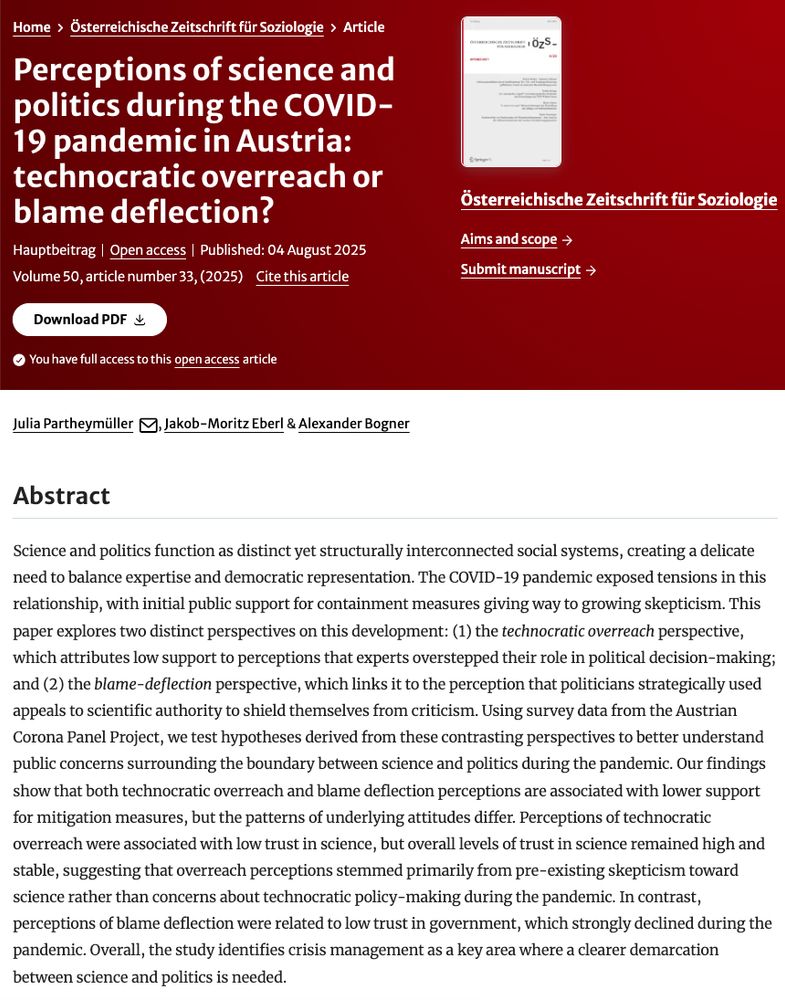
Abstract: Science and politics function as distinct yet structurally interconnected social systems, creating a delicate need to balance expertise and democratic representation. The COVID-19 pandemic exposed tensions in this relationship, with initial public support for containment measures giving way to growing skepticism. This paper explores two distinct perspectives on this development: (1) the technocratic overreach perspective, which attributes low support to perceptions that experts overstepped their role in political decision-making; and (2) the blame-deflection perspective, which links it to the perception that politicians strategically used appeals to scientific authority to shield themselves from criticism. Using survey data from the Austrian Corona Panel Project, we test hypotheses derived from these contrasting perspectives to better understand public concerns surrounding the boundary between science and politics during the pandemic. Our findings show that both technocratic overreach and blame deflection perceptions are associated with lower support for mitigation measures, but the patterns of underlying attitudes differ. Perceptions of technocratic overreach were associated with low trust in science, but overall levels of trust in science remained high and stable, suggesting that overreach perceptions stemmed primarily from pre-existing skepticism toward science rather than concerns about technocratic policy-making during the pandemic. In contrast, perceptions of blame deflection were related to low trust in government, which strongly declined during the pandemic. Overall, the study identifies crisis management as a key area where a clearer demarcation between science and politics is needed.
🚨New Publication
Perceptions of Science and Politics During the COVID-19 Pandemic in Austria: Technocratic Overreach or Blame Deflection? 🧪
By @schnizzl.bsky.social, @jamoeberl.bsky.social & Alexander Bogner
➡️ doi.org/10.1007/s116...
🧵1/10
05.08.2025 13:54 — 👍 21 🔁 7 💬 1 📌 0

Knowing without knowing: how false confidence shapes the world
This Humanities and Social Sciences Communications collection explores the mechanisms and impact of false or misplaced confidence, and how it shapes the ...
Call for Papers: "Knowing Without Knowing: How False Confidence Shapes the World"
🗓️ Deadline: 23.4.2026
🔗 www.nature.com/collections/...
Co-Edited with: M. Adamus, S. Chen
#Misinformation #ConspiracyBeliefs #Polarization #ScienceDenial #Overconfidence 🧪
🔄 Help us spread the word!
28.07.2025 09:42 — 👍 34 🔁 21 💬 1 📌 0
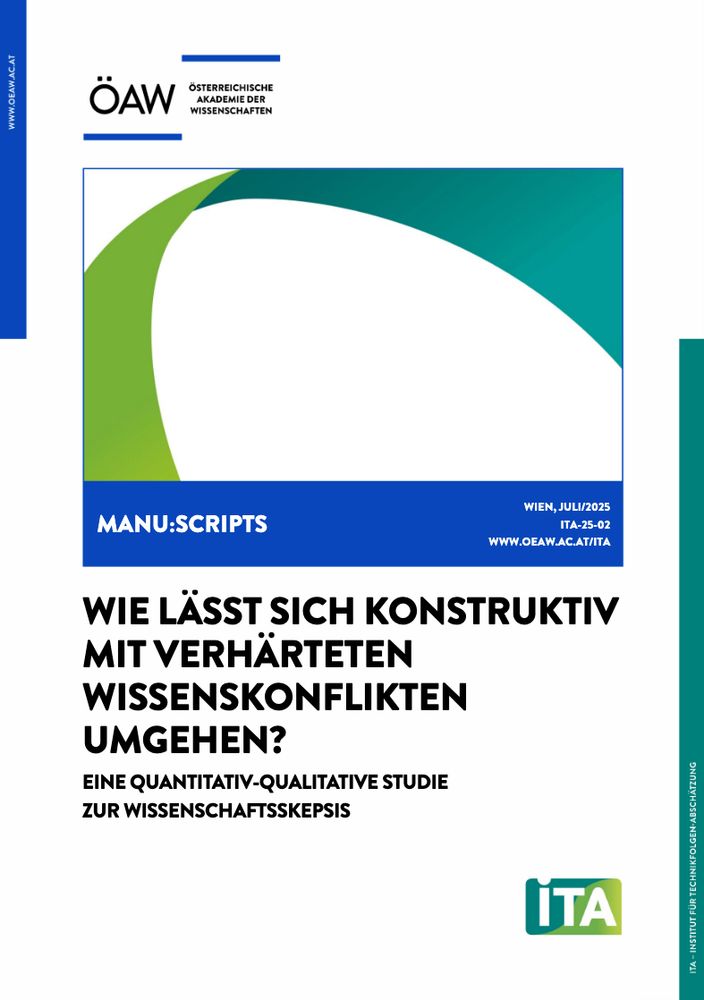
Titelblatt eines Berichts des Instituts für Technikfolgen-Abschätzung (ITA) der Österreichischen Akademie der Wissenschaften (ÖAW). Der Titel lautet: „Wie lässt sich konstruktiv mit verhärteten Wissenskonflikten umgehen? Eine quantitativ-qualitative Studie zur Wissenschaftsskepsis“. Oben links sind das ÖAW-Logo und die Webadresse www.oeaw.ac.at zu sehen. Rechts unten steht das ITA-Logo. Erscheinungsort und -datum: Wien, Juli 2025, ITA-25-02.
📚 Neue Studie erschienen
"Wie lässt sich konstruktiv mit verhärteten Wissenskonflikten umgehen? Eine quantitativ-qualitative Studie zur Wissenschaftsskepsis"
Mit Alexander Bogner, Agnes Kirchner, Katharina Miko-Schefzig, Michaela Pfadenhauer & Markus Trimmel
🔗 epub.oeaw.ac.at?arp=0x00407b20
14.07.2025 15:19 — 👍 49 🔁 19 💬 0 📌 1
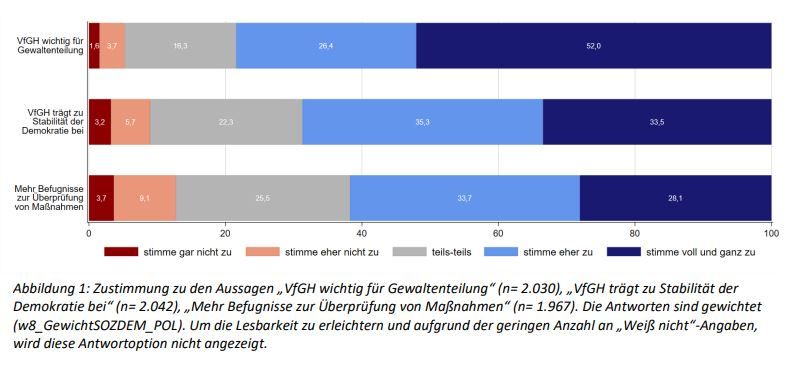
📯Neuer Digitize!-Kurzbericht von Katharina Pfaff und Jerg Gutmann @jerggutmann.bsky.social mit interessanten Ergebnissen aus der letzten Digitize!-Befragungswelle über Vertrauen der österreichischen Bevölkerung in die Justiz❗: digitize.univie.ac.at/fileadmin/us...
01.07.2025 09:53 — 👍 2 🔁 1 💬 0 📌 0
@isabellareb.bsky.social @marvins.bsky.social @jzmarlier.bsky.social @frawin.bsky.social @thomasmmeyer.bsky.social @beatrizlasherasmas.bsky.social @elenaheinz.bsky.social @martav.bsky.social @schnizzl.bsky.social and Sylvia Kritzinger 3/3
25.06.2025 14:14 — 👍 3 🔁 0 💬 0 📌 0
@christinagahn.bsky.social @alexanderdalheimer.bsky.social @mascakir.bsky.social @mkaltenegger.bsky.social @annaliabrunetti.bsky.social @versteegenluca.bsky.social @bseisl.bsky.social 2/3
25.06.2025 14:14 — 👍 3 🔁 0 💬 1 📌 0
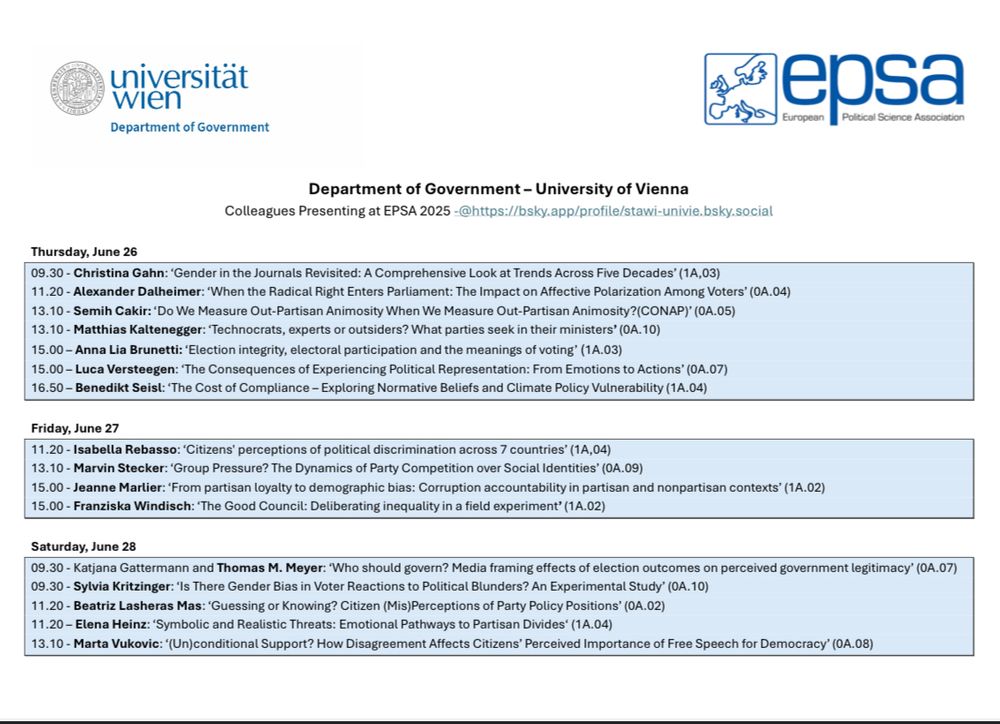
The schedule of the presenters from the EPSA2025
From 26 to 28 June 2025, the 15th Annual Conference of the European Political Science Association will take place in Madrid, Spain. Many of our colleagues will attend the conference and present their research. #EPSA2025. The presenters are: 🧵 1/3
25.06.2025 14:14 — 👍 33 🔁 16 💬 1 📌 3
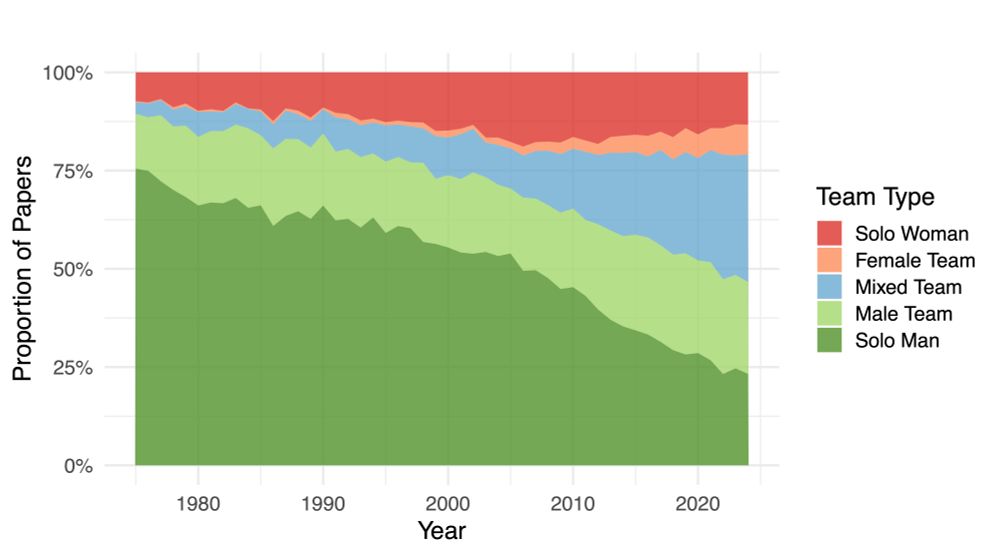
Proportion of Papers by Year and Team Type
Excited to kick off #EPSA2025 on Day 1, Panel 1! 🎉
I’ll present my co-authored research with @michaelimre.bsky.social on 50 years of gender representation in political science publications. We analyze nearly 100,000 articles across 72 journals to uncover long-term trends. 🔍
@epsanet.bsky.social
24.06.2025 10:13 — 👍 128 🔁 43 💬 3 📌 1
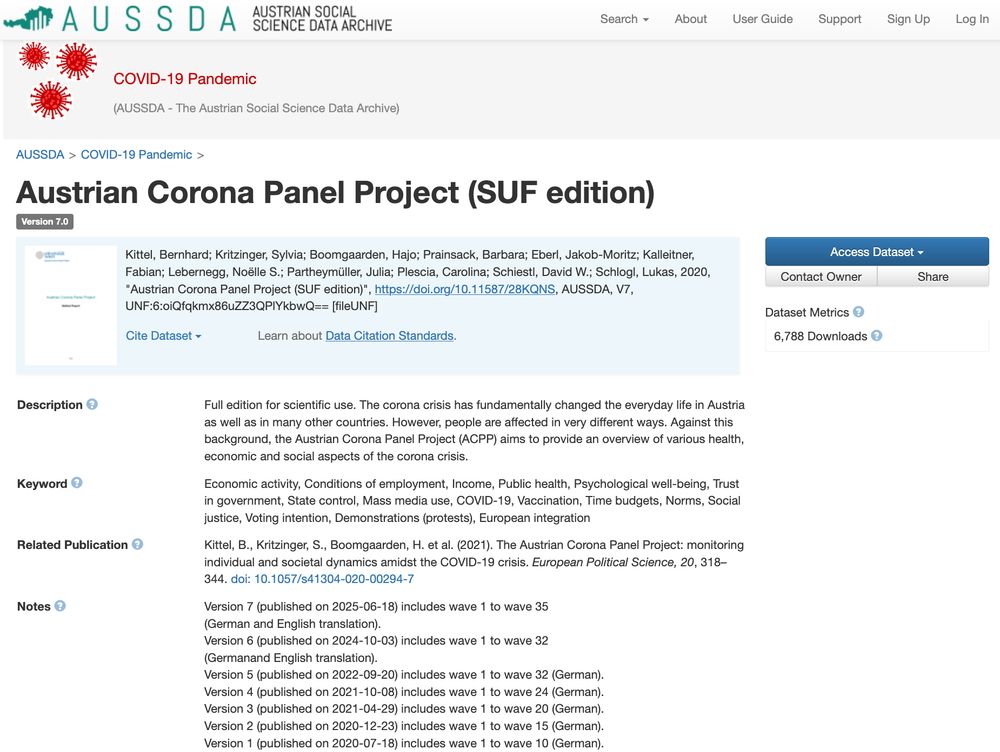
Screenshot of the AUSSDA data archive page for the Austrian Corona Panel Project (SUF edition), version 7.0. Lists the project team, citation, description, keywords, and notes. Highlights 35 waves of panel data from March 2020 to July 2023 with German and English translations. Dataset has over 6,700 downloads. Links to the SUF version: https://doi.org/10.11587/28KQNS.
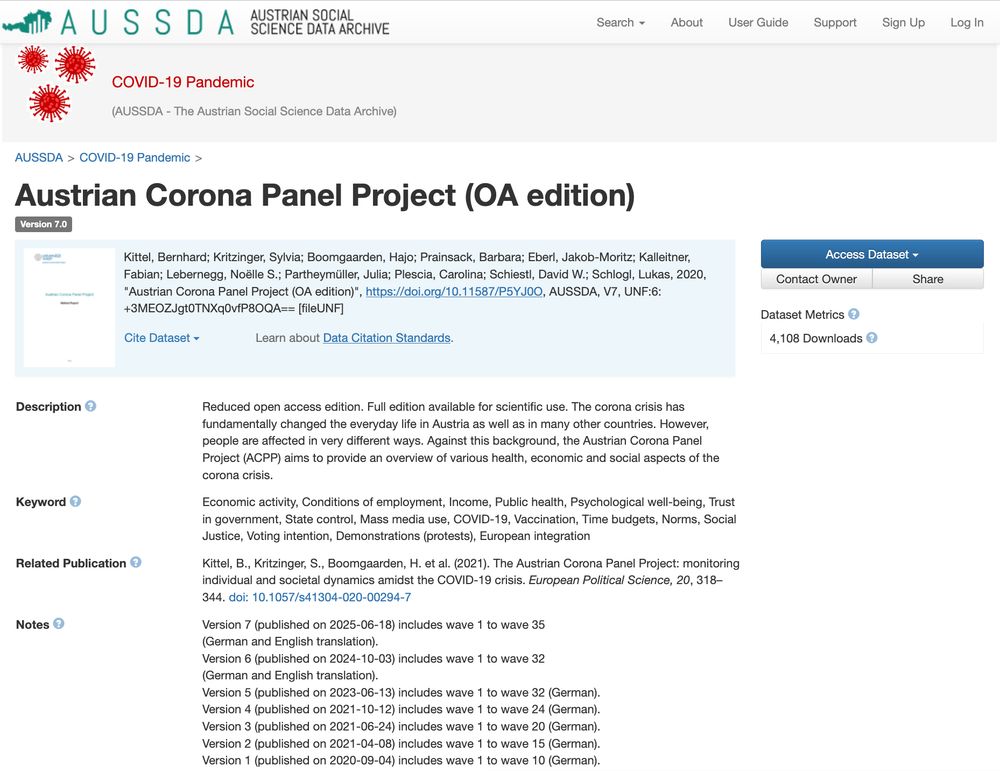
Screenshot of the AUSSDA data archive page for the Austrian Corona Panel Project (OA edition), version 7.0. Includes project details, citation, keywords, and notes. Indicates it's a reduced open access version covering 35 waves of COVID-19-related panel data in Austria with German and English translations. Dataset has over 4,100 downloads. Links to the OA version: https://doi.org/10.11587/P5YJ0O.
📢 Final #ACPP dataset now available via @aussda.bsky.social
🔍 Tracked how people in Austria experienced COVID-19
📅 35 waves (Mar 2020–Jul 2023)
👥 ~1,500 interviews per wave
🌍 English translations
📂 SUF: doi.org/10.11587/28K...
📖 OA: doi.org/10.11587/P5Y...
📊 Explore: woco.univie.ac.at/dashboard/
19.06.2025 08:57 — 👍 22 🔁 6 💬 0 📌 0
@carolinaplescia.bsky.social presented her forthcoming book "The Meanings of Voting for Citizens: A Scientific Challenge, a Portrait, and Implications" Oxford University Press in the framework of a course at Ben-Gurion University of the Negev thought by Prof. Jennifer Oser. 📢🎥
11.06.2025 13:31 — 👍 8 🔁 1 💬 0 📌 1
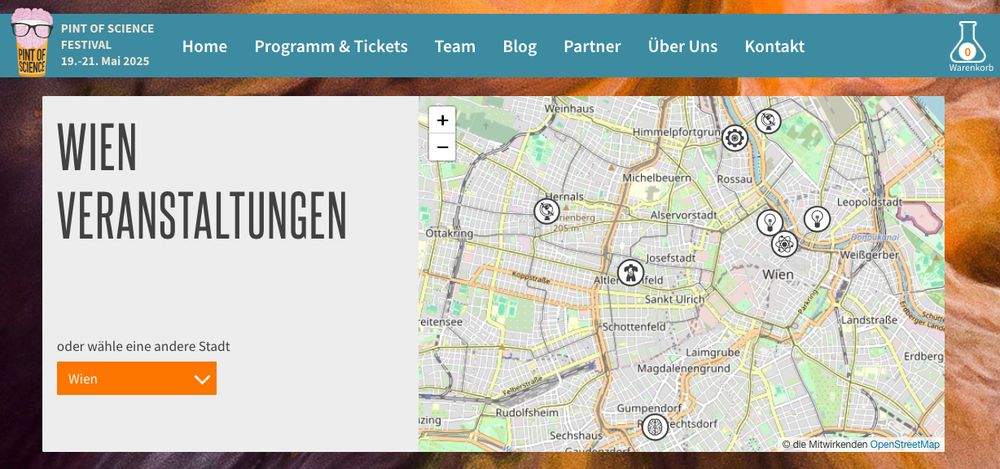
Startseite des Pint of Science Festivals 2025 für Wien. Links die Überschrift „Wien Veranstaltungen“ mit Stadtauswahl-Menü, rechts eine interaktive Karte mit Veranstaltungsorten in Wien.
Nächste Woche gehts los: Pint of Science – das Wissenschaftsfestival! 🧠🍺
Vom 19. bis 21. Mai präsentieren Wissenschaftler:innen ihre Forschung in 6 österreichischen Städten – Wien ist mit besonders vielen spannenden Events dabei. Hier ein Überblick!
🎟 pintofscience.at/events/wien
#pint25 #pint25AT
12.05.2025 19:34 — 👍 25 🔁 9 💬 2 📌 1

Journal Article: How Illiberal Parties Shape Immigration Discourse and Party Competition
How does far right parties' parliamentary and governmental participation influence both their discourse and that of mainstream parties?
⚠️ New AUTHLIB journal article - open access ⚠️
❓How do illiberal far right parties influence discourse on immigration?
Franziska Wagner (CEU), Dean Schafer (@mississippistate.bsky.social, @ceudeminst.bsky.social) Mehmet Yavuz (CEU, Uni Salzburg) have the answers.
www.authlib.eu/journal-arti...
06.04.2025 20:32 — 👍 5 🔁 3 💬 0 📌 0
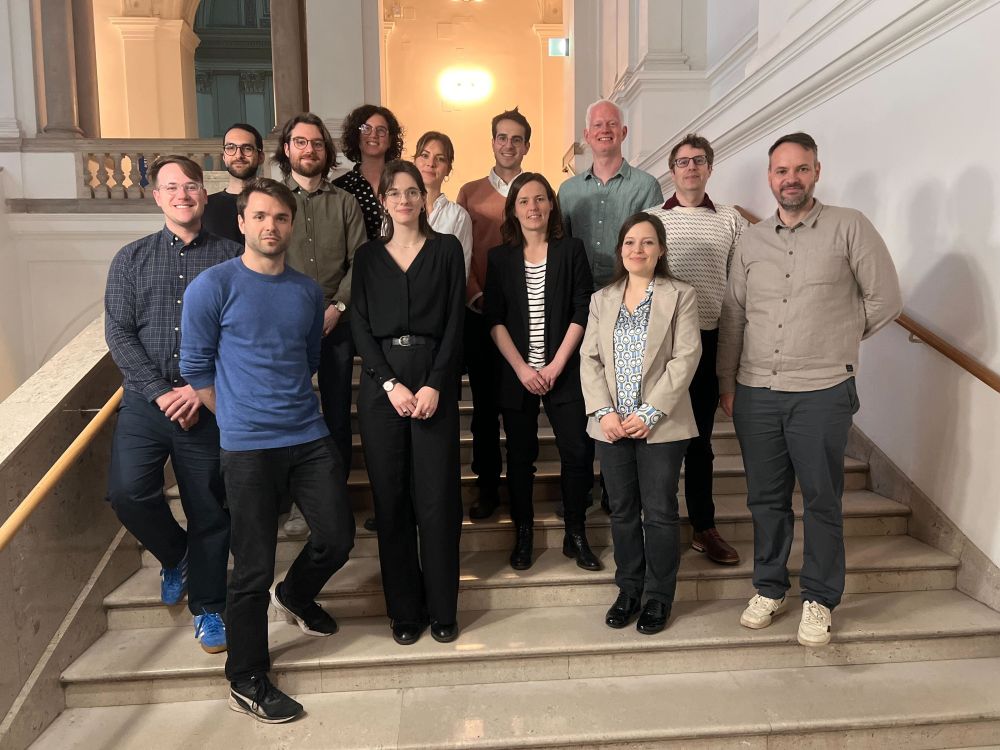
From March 13 to 14, 2025, the ‘PARTISAN’ project by @markuswagner.bsky.social hosted a workshop on partisan politics.
Researchers from the Department of Government and international guests came together to discuss political stereotypes, affective polarization and more. ✍️ 🗳️
16.04.2025 11:43 — 👍 21 🔁 1 💬 0 📌 0
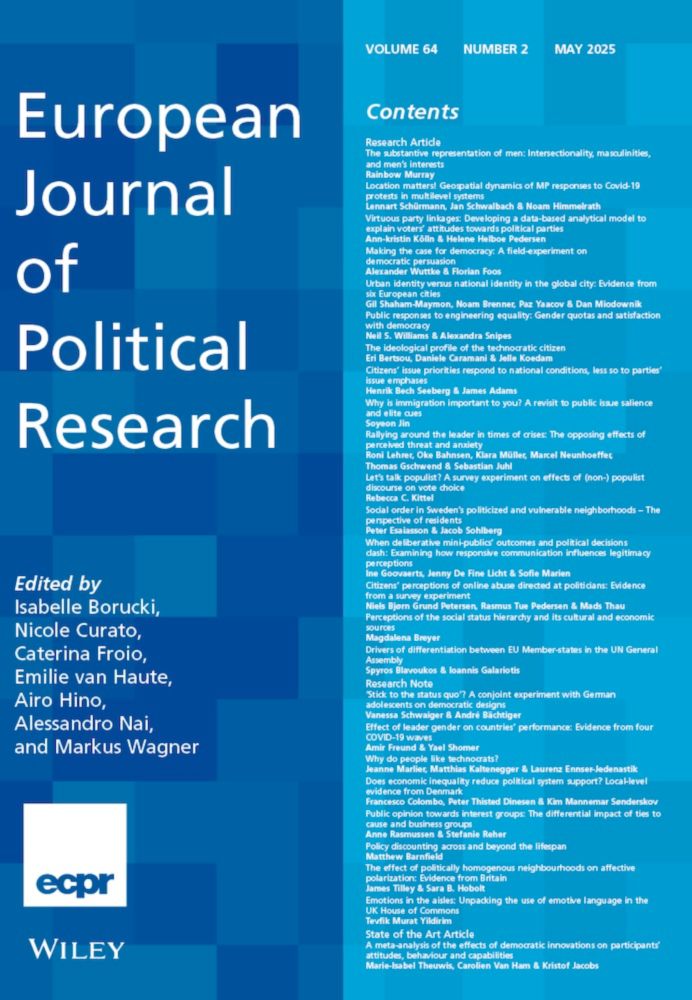
Constituency references in social media: MPs' usage and voters' reaction
Social media platforms offer MPs the opportunity to directly signal attention to their local voters in the constituency. And while previous research has linked the strategic use of such local cues in...
📣 New research in EJPR together with the wonderful @nathaliegiger.bsky.social, @stefaniebailer.bsky.social, T. Turner-Zwinkels & S. Heller:
We find:
1) MPs use more constituency signals while campaigning,
2) voters notice the signals,
3) but don't reward that behaviour.
doi.org/10.1111/1475...
15.04.2025 08:11 — 👍 24 🔁 9 💬 0 📌 1
Fascinating new research from Dr. @schnizzl.bsky.social @univie.ac.at challenges our assumptions about online surveys. Her comparative study reveals surprising results between probability-based & non-probability methods.
Rethinking how we collect data?
👉🔗 www.hertie-school.org/en/datascien...
09.04.2025 11:40 — 👍 21 🔁 5 💬 0 📌 2
Exciting news for #MEDem! 🙌🍾
10.04.2025 09:18 — 👍 3 🔁 1 💬 0 📌 0
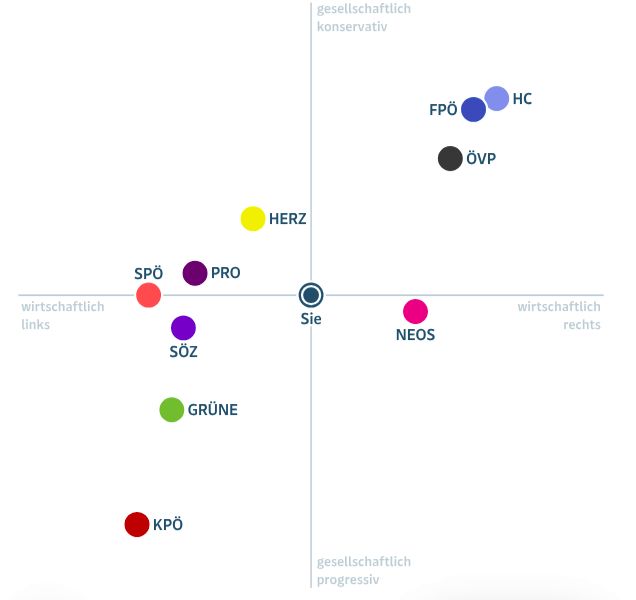
Die Diskussion, ob div. verkehrspolitische Maßnahmen eher Wirtschafts- oder Gesellschaftspolitik sind, hätten wir als Podcast aufnehmen sollen :)
Danke an das gesamte @derstandard.at-Team für den Wahlkompass zur Wien-Wahl 2025: www.derstandard.at/story/300000...
26.03.2025 11:39 — 👍 41 🔁 14 💬 8 📌 2
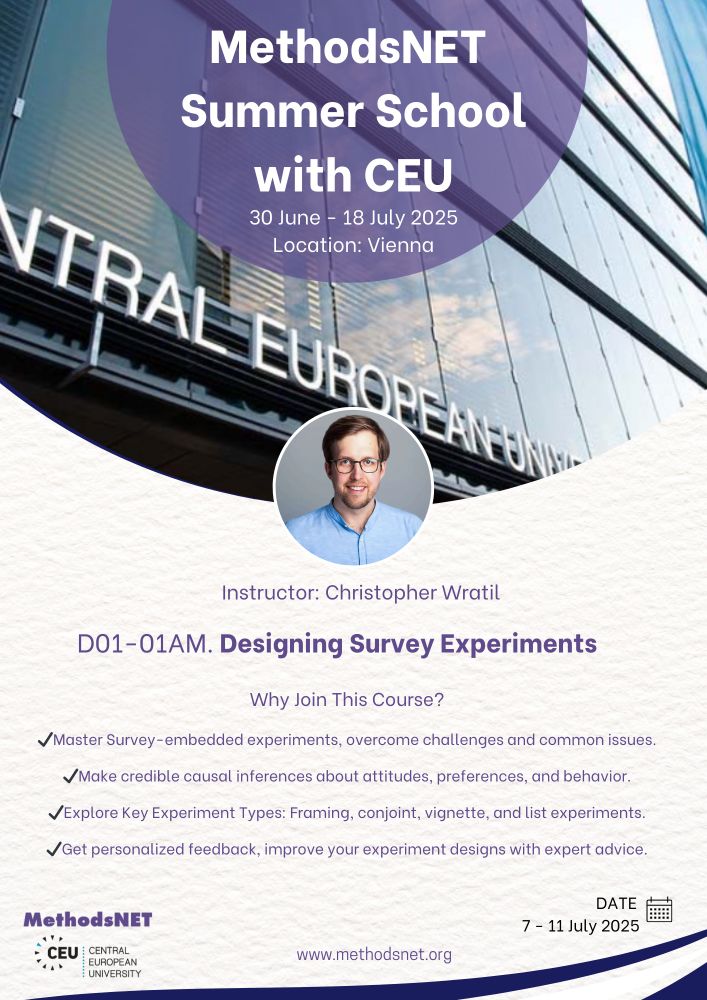
Early Bird Registration ends TONIGHT!⏳
Ready to enhance your research with survey-embedded experiments?Join Christopher Wratil@chriswratil.bsky.social at MethodsNET Summer School at @weareceu.bsky.social(CEU) his course on designing and implementing survey experiments.
Register here: bit.ly/4gLbv9V
26.03.2025 11:38 — 👍 9 🔁 5 💬 0 📌 1
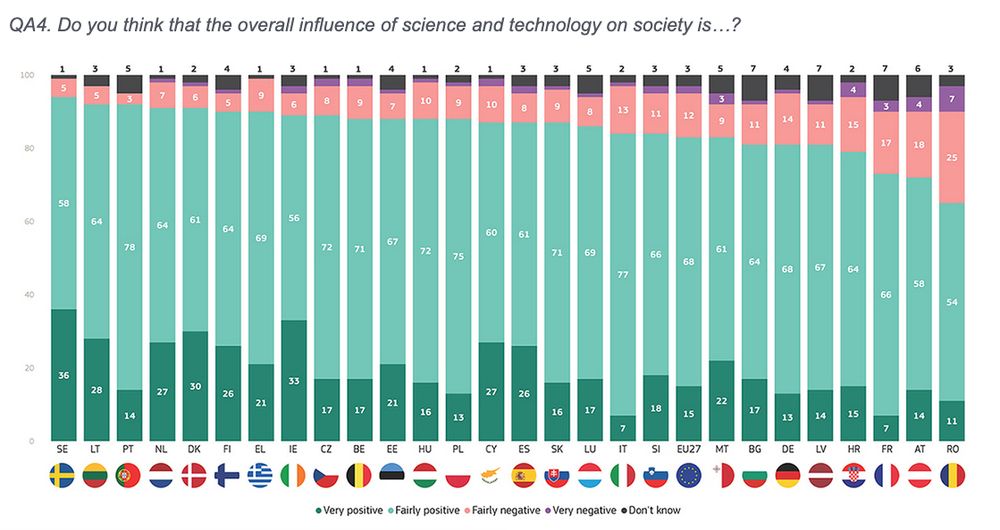
Gestapelte Balkendiagramm-Grafik mit dem Titel: „QA4. Do you think that the overall influence of science and technology on society is…?“ Dargestellt sind Antworten aus 27 EU-Ländern und dem EU-Durchschnitt.
Jeder Balken zeigt die Verteilung in Prozent: Very positive (dunkelgrün), Fairly positive (hellgrün), Fairly negative (rosa), Very negative (lila), Don’t know (schwarz).
Fokus auf Österreich (AT):
11 %: sehr positiv
58 %: ziemlich positiv
17 %: ziemlich negativ
8 %: sehr negativ
6 %: weiß nicht
Österreich gehört zu den Ländern mit der höchsten negativen Bewertung. Nur Rumänien bewertet Wissenschaft und Technologie noch negativer.
Gerade erst die Eurobarometer-Umfrage vom Februar gesehen: Die meisten Menschen in Europa sehen einen positiven Einfluss von Wissenschaft & Technologie auf die Gesellschaft, aber Österreich gehört zu den Ländern mit den höchsten negativen Bewertungen (18 % + 4 % = 22 %) …
europa.eu/eurobaromete...
27.03.2025 08:19 — 👍 24 🔁 9 💬 1 📌 0
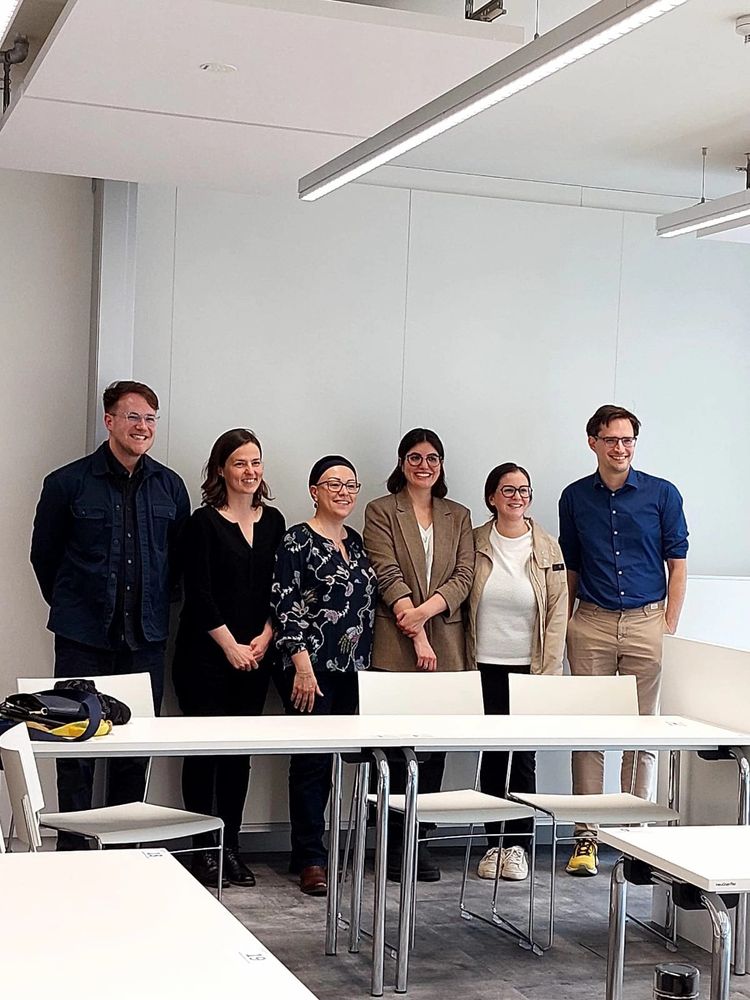
We are happy to announce that PhD student Belén Abdala successfully defended her thesis "From Voting to Candidacy: An Analysis of Individuals’ Motivations to Participate in Politics" on 12th of March!
Congratulations, Belén! Wishing you all the best in your future endeavors!
#PhDone
18.03.2025 10:21 — 👍 17 🔁 2 💬 0 📌 0
Compte du Département de science politique de l'Université libre de Bruxelles / Account of the Department of Political Science of the Université libre de Bruxelles
COMPTEXT is an international community and forum for text/image/video as data scholars
The institutional account of the Data Science Lab at the Hertie School of Governance in Berlin: https://www.hertie-school.org/en/datasciencelab
Political scientist 🇿🇦🏳️🌈
Associate Editor POQ, EJPG, and R&P
he/him
Far-right, social identities, & electoral behaviour
Writing a book on LGBTQ voters for PUP 🏳️🌈🗳️
http://turnbulldugarte.com/
#ihadablackdog
https://youtu.be/XiCrniLQGYc?si=q-gQTNXfScmgtl4k
Political scientist. Postdoc at University of Vienna
PhD student at the University of Vienna | Pre-doc at WWTF Project on Citizen-Centric Democracy | Alumna of LSE & METU
Maître de conférences en science politique à l'Université catholique de Lille
The Vienna Cognitive Science Hub is a network of researchers at @univie.ac.at. Active in various disciplines of Cognitive Science and Cognitive Neuroscience.
https://cogsci.univie.ac.at
Psychology: education and politics - focusing on motivation, emotions and civic education // PhD @univienna // Postdoc @TU Dortmund // http://elisabeth.graf-at.eu/
// (c) Foto: Ines Blatterer
👩🏫Professor of democratic political decision making @uni-hamburg.de
🔍democracy | parties | gender | CEE🇭🇺 🇵🇱
🛠️TextasData & digital methods
www.theresagessler.eu/ | former @th_ges
🚋⛰️🚴♀️
Teaching & Researching Climate Change & Democracy for Politics-PhD @ CDSS, Uni Mannheim; Researching Social Cohesion & Freedom of Speech @ Goethe-Uni Frankfurt & Humboldt University Berlin
all about citizenship | 🇳🇱 prof @eui-schuman.bsky.social @eui-eu.bsky.social 🇮🇹 🇪🇺 co-director @globalcit.bsky.social 🌏 | resident of Braga 🇵🇹 | https://eui.eu/people?id=maarten-vink | #MigCitSky | https://go.bsky.app/5vLDGon | 🚲 cyclist in Florence ⚜️
Postdoc at UVienna and Yale ISPS || DPhil in Politics at Oxford DPIR || migration & suffrage & parties || klaudiawegschaider.com
Postdoc & Scientific Coordinator @gesistraining.bsky.social. PhD from @gessunimannheim.bsky.social. She/her. Comparative politics, legislative behaviour, European Parliament, computational political science.
Politics, dogs, and Morning Show @fm4.orf.at
Predoctoral fellow UZH econ
Research interests: inequality & econometrics
polsci | Postdoc at University of Münster, previously PhD candidate at European University Institute | radical right, justifications, gender | computational text analyses | he/him
Political scientist | University of Vienna
Research on political parties, political elites, intra-party politics, technocracy
Political scientist at University of Vienna. Previously at University of Montreal - I study polarisation, partisanship and democratic citizenship.
www.semihcakir.com


















